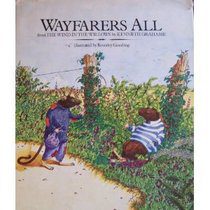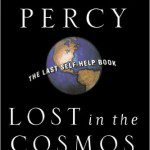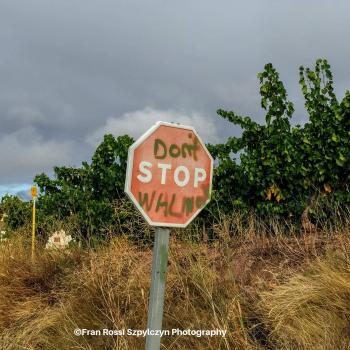There’s a chapter in Kenneth Grahame’s Wind in the Willows called “Wayfarers All.” I remembered it as an ode to the vagabond life and the pilgrim spirit in us all, but when I re-read it to my daughter, I realized it’s quite the opposite. It’s about the particular gift of rootedness, of staying put, and the power of art-making to heal a restless soul.
As I’ve never lived anywhere more than a year and I was hoping to find in Grahame another comforting metaphor for itinerancy, I found that pretty disappointing.
The chapter begins with the River Rat watching with great irritation and envy as other animals make plans to leave his beloved English countryside and head south for the winter: “The Rat was a self-sufficing sort of animal, rooted to the land, and, whoever went, he stayed; still, he could not help noticing what was in the air, and feeling some of its influence in his bones.”
Then poor Rat is utterly seduced by a charming seafarer who strolls into town with his romantic tales of distant ports. By the time Rat finishes lunch he is in a trance-like state, ready to leave behind his home for a life of adventure. This alarms his dear friend the Mole. To talk Rat down, he chats with him about the everyday, and all the beloved familiarities a new season brings:
The harvest that was being gathered in, the towering wagons and their straining teams, the growing ricks, and the large moon rising over bare acres dotted with sheaves…. By degrees the Rat began to sit up and to join in. His dull eye brightened, and he lost some of his listening air.
Mole, seeing his chance, slips Rat a few sheets of paper and a pencil, remarking: “It’s quite a long time since you did any poetry…. You might have a try at it this evening, instead of—well, brooding over things so much.”
The Rat pushed the paper away from him wearily, but the discreet Mole took occasion to leave the room, and when he peeped in again some time later, the Rat was absorbed and deaf to the world; alternately scribbling and sucking the top of his pencil. It is true that he sucked a good deal more than he scribbled; but it was joy to the Mole to know that the cure had at least begun.
The story takes a great shot at that enduring myth of bohemianism—that we must live free and wild and detached to make art. Great lives have surely been led this way, the Mole seems to understand, but it’s not the only way. It’s also possible that the continuity and peace of a settled life enable us to channel all our restless longings into something beautiful, something that lasts.
When we moved to our second faculty house here in Northern Michigan, the students at the boarding school where my husband teaches were just returning for the fall semester, and I was watching with envy while the tourists scattered for their southerly homes, knowing I must winter over. I remember I was standing in the kitchen, wondering how I might muster the enthusiasm for organizing yet another set of cabinets, when two students arrived to collect the few things I had stored for them in our previous basement. They were musicians, and to thank us, they offered to play a couple of songs in our new living room. We gathered the children on the couch as one of them tuned her banjo and began to sing, with much more depth and longing and conviction than I would have imagined possible from a teenaged girl, the folk song “Wayfaring Stranger.”
I am a poor, wayfaring strangertraveling in this world belowYet there’s no sickness, toil or dangerin that bright world to which I go.I’m going there to see my mommashe said she’d meet me when I comeSo I’m just going over JordanI’m just going over home.
If I can’t make a gift of staying put, as Rat did, I thought, maybe this is how to make a gift of an unsettled life: to take our offerings—our songs, our stories, ourselves—door to door, to give whatever we can make to another, so that even if only for a short time, we are no longer strangers, but fellow pilgrims going home.
*This post, which was an inspiration for Sick Pilgrim, is excerpted from a longer essay Jessica wrote called “The Art of Leaving,” which originally appeared in America. If you’re intrigued, you can read the whole thing over there.













